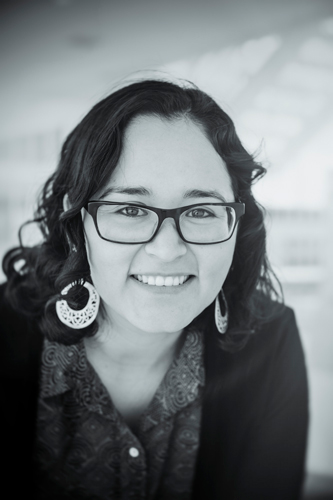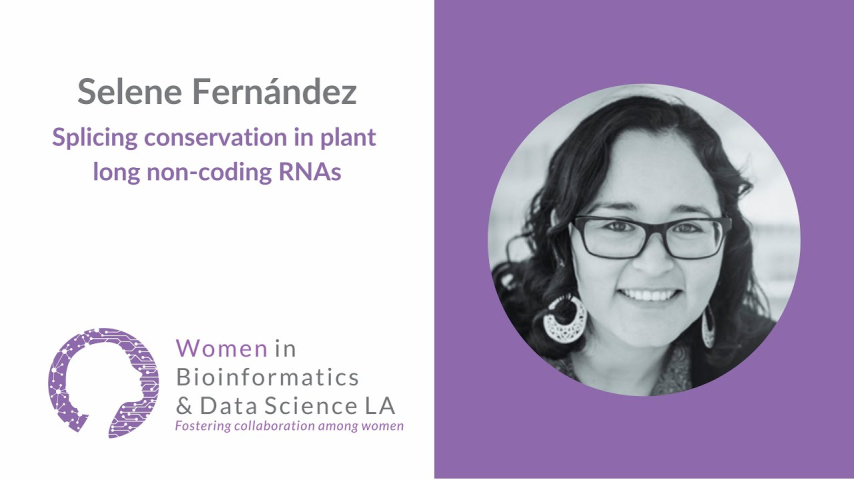
Keywords
Fields of Research (FoR)
Bioinformatics and computational biology, Genomics and transcriptomics, Evolutionary biology, Plant biologyBiography
Check out the lab website here ---> https://regrnalab.github.io/
Dr Fernandez is a genomic scientist & bioinformatician interested in understanding the role non-coding RNAs play in the evolution of gene regulatory landscapes within and across eukaryotes.
She is a Senior Lecturer RNA New Research Talent Program (Level C) funded by the UNSW RNA Institute. Her laboratory focuses on studying the evolution of long non-coding RNAs in various plants...view more
Check out the lab website here ---> https://regrnalab.github.io/
Dr Fernandez is a genomic scientist & bioinformatician interested in understanding the role non-coding RNAs play in the evolution of gene regulatory landscapes within and across eukaryotes.
She is a Senior Lecturer RNA New Research Talent Program (Level C) funded by the UNSW RNA Institute. Her laboratory focuses on studying the evolution of long non-coding RNAs in various plants and animals to predict their functions better using bioinformatic tools and genomic approaches. She is particularly interested in how these could be leveraged to impact food production and disease in crops and humans.
Dr Fernandez holds a BSc in Genomic Sciences from the National Autonomous University of Mexico (2007). She completed her doctorate at the University of Queensland (UQ), studying new classes of small RNAs with Prof. John Mattick in 2013. As a postdoc, she used comparative genomics to identify regulatory changes that facilitated the evolution of multicellular organisms and morphological diversity in the animal kingdom in the laboratory of Prof. Bernie Degnan, UQ (2012-2015). She then returned to her native Mexico as a Principal Investigator at the Advanced Genomics Unit of Cinvestav (2016-2023) before joining UNSW as a Senior Lecturer in mid-2023.
Dr Fernandez was awarded the Mexico national scholarship L’Oreal-UNESCO-AMC-CONACYT for Women in Science in 2016, the International Rising Talents Fellowship of L’Oreal-UNESCO in 2018 and the Gender Equality Award by the International Union of Immunological Societies in 2019. She is a founding member of Mas Ciencia por Mexico (More Science for Mexico), the Mexican Network of Bioinformatics (Red Mexicana de Bioinformática), and a volunteer instructor of Software Carpentry and previously Clubes de Ciencia Mexico.
She has served as a volunteer mentor at foundations such as Ekpapalek and the “Mujeres en STEM: Futuras Líderes” program of the US-Mexico Foundation. Forbes Mexico magazine selected her as one of the 100 most powerful women in Mexico in 2018. She was recently elected in the competitive female climate leadership program 'Homeward Bound' and is part of #TeamHB8.
My Grants
- 2021: Bioinformatics training room infrastructure upgrade: increasing bioinformatics training accessibility in Mexico CABANA Training Infrastructure Award, CABANA Innovation Fund, EMBL-EBI, UK (7,925.38 GBP)
- 2020: Patrones de expresión alelo específicos en lupus eritematoso sistémico durante la inducción de tolerancia (Allele-specific expression patterns in systemic lupus erythematosus during tolerance induction) Convocatoria 2019 de Proyectos de Ciencia de Frontera, Modalidad de Grupo, CONACYT, Mexico ($3,149,880.30 MXN ~285,750 AUD)
- 2018: Co-expresión tejido específica de dominios estructurales conservados en ARNs largos no codificantes (Tissue-specific co-expression of conserved structural domains in long non-coding RNAs) Convocatoria 2017-2018 de Proyectos de Investigación Científica Básica, Investigador Joven, CONACYT, Mexico ($1,418,200.00 MXN ~128,656 AUD)
- 2018: The evolutionary dynamics of long non-coding RNAs and chromatin structure in plants. Newton Advanced Fellowship Research Fellow, The Royal Society, UK (105,500.00 GBP)
My Awards
- 2019: Gender Equality Award. International Union of Immunological Societies (IUIS)
- 2018: L’Oréal-UNESCO For Women In Science, International Rising Talents Fellow (15,000 euros)
- 2016: L’Oréal-UNESCO-CONACYT-AMC Fellowship for Women in Science (Becas Para las Mujeres en la Ciencia) - Mexico ($100,000 MXN)
- 2008-2011: UQ International Research Tuition Award (UQIRTA)
- 2008-2011: Research Scholar scholarship from the Institute for Molecular Bioscience
- 2006: ICE-EM International Travel Scholarship to attend the BioInfoSummer symposium at the Australian National University in Canberra ($2,500 AUD)
My Research Activities
In the RegRNALab, we leverage bioinformatic and genomic data analysis to understand how gene regulatory mechanisms change through time, while mantaining the intricate development and diversity of cells we find in multicellular plants and animals.
We are particularly interested in understanding the evolutionary dynamics of non coding RNA molecules. For this, we study a number of biological models that span different evolutionary scales, including humans, plants and animals.
We aim to identify and characterise gene control mechanisms to unveil new medical and biotechnological applications of transitory gene control using RNA.
Comparative genomics of synthenic regions that generate long non-coding RNAs (lncRNAs) to model their evolutionary dynamics.
We are currently comparing the evolution of lncRNAs in synthenic regions in plants to measure how quickly they are lost gain across plant evolution. We also aim to understand what fraction of lncRNAs are under splicing, positional and structural selection in this kingdom.
Identification of functionally homologous lncRNA structural modules.
One of the greatest limiting factors in the identification of lncRNA function is the lack of functional information at the modular level that could potentially be extrapolated to other lncRNAs. We are working in the identification of “structural domains” in lncRNAs that allow us to infer the function of such molecules de novo using bioinformatic methods for their identification join with experimental methods for functional validation.
Identification of lncRNAs under recent selection in human populations.
In collaboration with the group of Dr. Andres Moreno-Estrada we recently characterized the genetic variation of modern Mexicans across Mexico.
We are leveraging this and other Biobanks to identify lncRNAs under selection as well as associated to cardio-metabolic syndromes in admixed populations. We are very interested in how genetic diversity and admixture in humans impacts disease.
My Research Supervision
Supervision keywords
Areas of supervision
Genomics, Bioinformatics
Currently supervising
- Irving Jair García (PhD candidate, based at the Advanced Genomics Unit, Cinvestav, Mexico - jointly advised with Dr. Stewart Gillmor)
- Gabriel Martinez (MSc student, based at the Unidad Irapuato, Cinvestav, Mexico - jointly advised with Dr. Katarzyna Oktaba)
Lab Alumni
- Sergio Nigenda-Morales, Postdoctoral Researcher, Cinvestav
- Victor Flores Lopez, Postdoctoral Researcher, Cinvestav
- Jose Cetz-Chel, Postdoctoral Researcher, Cinvestav
- Adrián Díaz Chávez - MSc Integrative Biology, Cinvestav
- Evelia Coss Navarrete - PhD Plant Biotechnology, Cinvestav
- Jaime Pérez Patiño - BSc & MSc Plant Biotechnology, Cinvestav
- Pablo Rosiles Loeza - MSc Plant Biotechnology, Cinvestav Judith Ballesteros Villascan - MSc Integrative Biology, Cinvestav
- América Ramírez Colmenero - MSc Integrative Biology, Cinvestav
- Stephanie Mata Bonilla - MSc Plant Biotechnology, Cinvestav
- José Antonio Corona Gómez - Postdoctoral Researcher & PhD Plant Biotechnology, Cinvestav
- Jordan Pérez Medina - MSc Plant Biotechnology, Cinvestav
- Emiliano Sotelo Fonseca - BSc & MSc Plant Biotechnology, Cinvestav
- Alexander Ramos Díaz - MSc Integrative Biology, Cinvestav
- Francisco Falcón Chávez - MSc Integrative Biology, Cinvestav
- Federico Gaiti - PhD, School of Biological Sciences, The University of Queensland
- Andrew Calcino - PhD, School of Biological Sciences, The University of Queensland
Location
Room 301D, Level 3, Biological Science South Building (E26)
UNSW Sydney
NSW 2052 Australia
Publications
ORCID as entered in ROS
Videos

